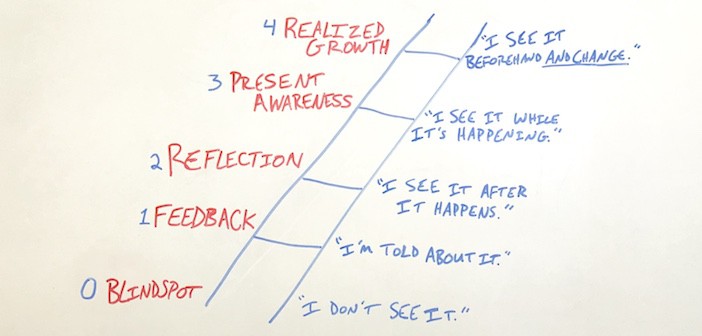Are you comfortable with the level of accountability that exists on your staff?
Most leaders I speak with would answer with a resounding, “No.” In fact, many are wondering what staff members are doing with their time while key responsibilities are being neglected.
When this concern reaches a boiling point, leaders begin to proclaim, “I need you to do better!” But “better” means something different to everyone on the team. Everyone is missing the mark. But no one’s quite sure where the target actually is.
In most cases, the real problem is not the lack of accountability. It is the lack of clear commitments which pave the way for accountability.
There is no accountability without clear commitments.
Consider this…
Like many leaders, I have an “accountability partner” in my life. For over a decade, he has held me accountable in my relationship with God, my relationship with Emily, my exercise plans, and so forth. But he’s only able to hold me accountable because I have made prior commitments in each of those areas. If I had never made a commitment to run three times a week, he would not really have anything to hold me accountable to. Any sudden challenge to, “Exercise more!,” would not be accountability. It would be a futile attempt to make me read his mind.
Unfortunately, that is what many of us do when we seek to increase accountability without first clarifying commitments.
When we fail to lead our team to clear commitments, we frustrate everyone over missed expectations they never knew existed.
So how do we improve accountability on our teams? The first step is to begin with advanced planning.
Great advanced planning paves the way for clear commitments. Clear commitments pave the way for expected accountability.
Let me explain…
Great advanced planning clarifies what is expected of everyone on the team. With those clear expectations, senior leaders and staff all understand the “wins” for each individual. Everyone gets on the same page about what is expected. And with those expectations comes undebatable accountability.
In the months to come, team members either meet or miss the commitments they made in advance. When expectations are missed, accountability is required — yet also much easier to understand as a team member. Now, no one is unclear about the fact that accountability is needed. Everyone, including under-performers, understand where the mark was set and that it was missed. Leaders are holding team members accountable to commitments they agreed to ahead of time, rather than vague standards communicated after it was too late.
What are you actually holding people accountable to?
Without clear commitments made in advance, what can you hold a staff person accountable to? Your own feelings? Under-communicated thoughts of what they should be doing? Whatever it is, it’s unfair to hold people accountable to an unclear target. Even the highest performers cannot hit a target when they’ve not been shown where it is.
Accountability ends with the staff person…but it begins with the leader. And that starting point is found in advanced planning, setting clear expectations on the front-end to which people can truly be held accountable.
What Advanced Planning Looks Like…
Here are two ways Advanced Planning should clarify commitments and improve accountability…
1. Annual Strategic Plans
Strategic plans should be developed or updated at least every 12 months in the life of your team. In them, organizational goals should be established along with each team’s and each team member’s role to accomplish those goals. Goals should be translated into Action Plans which must always. Always. ALWAYS. include 3 key components: Action Steps, Individual Owners, and Deadlines. In doing so, you’re creating clarity around the question, “Who is doing what, by when?” Only when you’ve fully answered that question do you have specific commitments to hold specific people accountable for.
2. 30-Day Wins
In ministry, it rarely, if ever, feels like you’ve “finished the job.” The end of every ministry season cues the start of the next. While no team ever fully “arrives,” I believe every person on your team should have a reason to celebrate forward progress at least every 30 days. But unless the “next wins” are defined in advance, it is hard for anyone to feel like he or she is ever winning. With that in mind, we have to establish 30-day wins with our team members.
One-on-one meetings must be more than status updates of what’s been done in the past. They should also be used to clearly define the next wins. As you meet with direct reports, ask, “What would real progress look like 30 days from now?” Craft measurable, objective wins for each area he or she is responsible for. Ensure you’re creating “black-and-white clarity” so you he or she knows when they’ve passed another milestone to celebrate. In doing so, you’re clarifying expectations on the front-end to which people can truly be held accountable and also celebrated.
They want to win!
Over the years, I’ve found that most team members really do want to win. However, they lack clarity on what winning looks like in their role for this season. Over and over again, I’ve been surprised by how much people can accomplish when they have a clear picture of the goal line. Advanced planning clarifies responsibilities ahead of time so that a standard exists to which people can pursue. And when individuals fail to meet the standard to which they committed, Advanced Planning provides the clarity of commitment required for true accountability.



